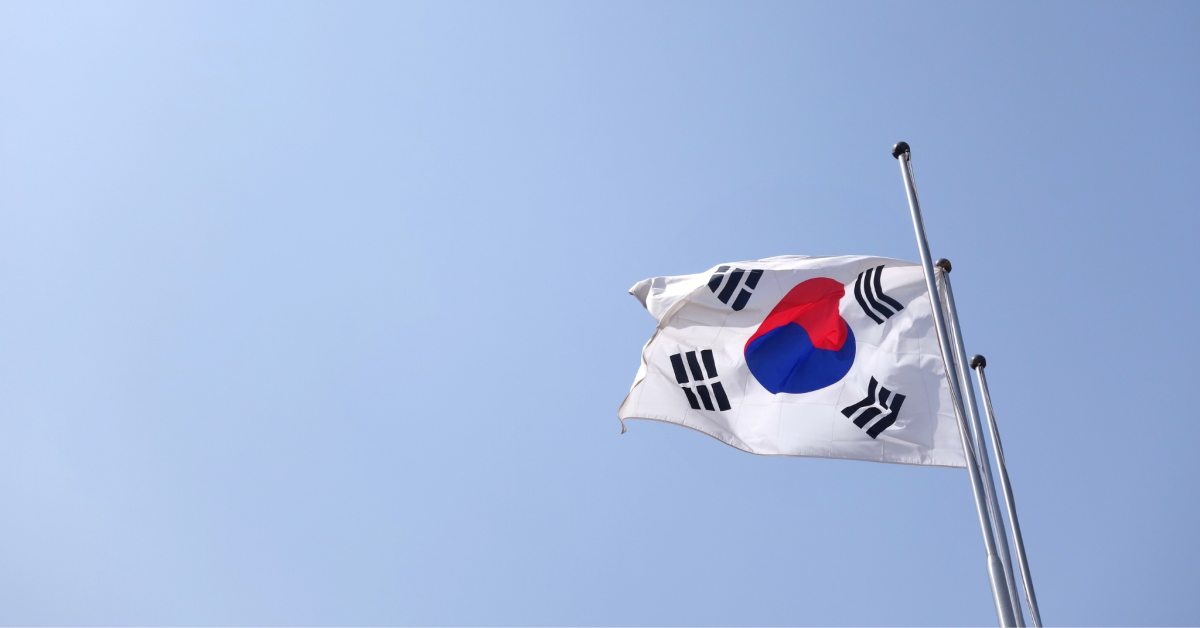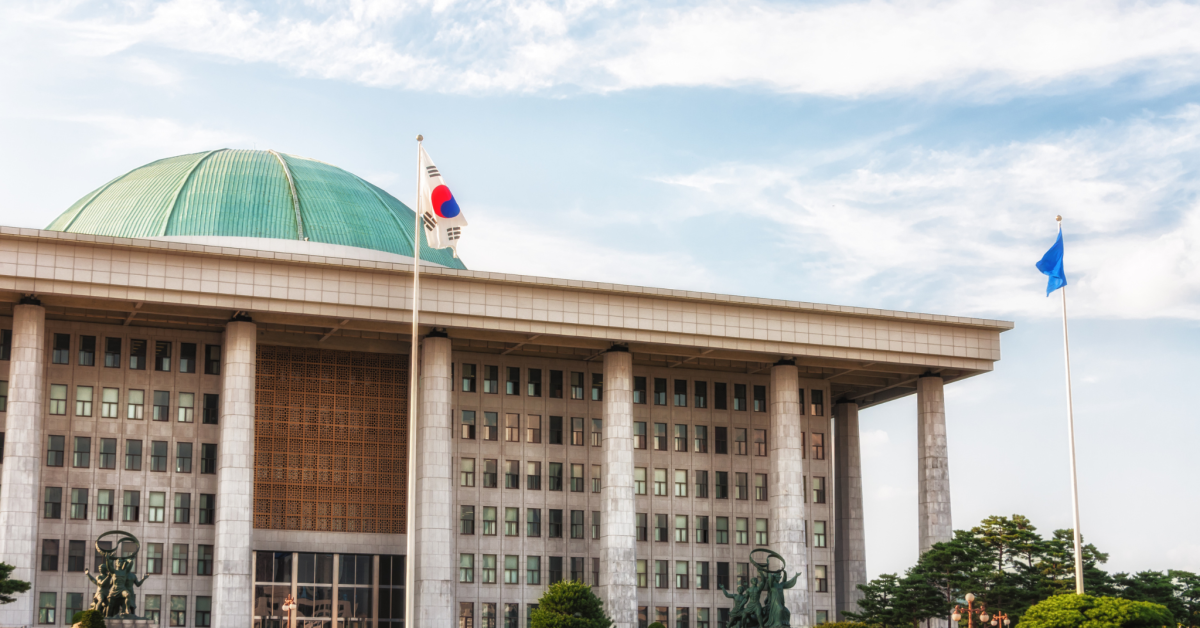Navigating Change in South Korea: What President Yoon’s Impeachment Means for Business and Policy
At a Glance
The Constitutional Court of Korea has confirmed the National Assembly’s decision to impeach President Yoon Suk-yeol, marking a significant political shift with profound implications for governance, business, and international relations. This ruling officially removes Yoon from office and ushers in a period of political transition that will shape the country’s policy direction in the coming months.
The decision is expected to deepen political polarization while reinforcing institutional checks and balances within South Korea’s democratic framework. For businesses, investors, and policymakers, understanding the evolving political landscape is critical to navigating the associated risks and opportunities. This report analyzes the key considerations following the Constitutional Court’s ruling and provides strategic insights to help stakeholders adapt to the changing environment.
Businesses should proactively monitor policy shifts, engage with key stakeholders, and adjust strategies to align with emerging political priorities. Given potential regulatory and trade changes, maintaining strong advocacy and reassessing regional strategies will be crucial. Consulting experts can help navigate uncertainties and mitigate risks.
Background
President Yoon Suk-yeol, who was elected in 2022, faced mounting political challenges during his time in office, including tensions with the opposition-controlled National Assembly, policy disputes, and dwindling public approval ratings. The impeachment effort, spearheaded by the opposition, arose from allegations of abuse of power and breaches of the constitution.
The immediate trigger for the impeachment proceedings was Yoon’s declaration of martial law, which lasted only a few hours yet sparked widespread political controversy. The National Assembly subsequently approved the impeachment motion, resulting in Yoon’s suspension and the review by the Constitutional Court.
This impeachment marks only the second occasion in South Korea’s history that a sitting president has been removed through a Constitutional Court adjudication, the first being the 2017 ousting of former President Park Geun-hye. The ruling acts as a test of Korea’s constitutional system and has redefined the balance of power between the executive and legislative branches.
The case has sparked intense political debate, with opposition parties asserting that impeachment was necessary to uphold democratic principles. Simultaneously, Yoon’s supporters have framed it as a politically motivated attempt to overturn the results of the 2022 election. The court’s decision will have enduring implications for South Korea’s governance, institutional credibility, and policy continuity.
Expected Order of Events
Following the Constitutional Court's confirmation of Yoon's impeachment, South Korea enters a transitional phase. Acting President and Prime Minister Han Duck-soo will continue to carry out presidential duties until a new president is elected. The expected sequence of events is as follows:

Expected Presidential Race Rivalry
The upcoming South Korean presidential election appears to be a contest between progressive and conservative candidates, each with distinct visions for the nation. The Democratic Party of Korea is anticipated to advocate for economic redistribution, an expansion of social welfare, and a more balanced foreign policy. In contrast, the People Power Party is likely to focus on market-driven policies, robust national security, and limited government intervention. The outcome of the election will shape the future of South Korea’s domestic policies and its role in global affairs.
The list of prospective candidates includes:
- Mr Lee Jae-myung (Democratic Party of Korea – DPK): The leader of the Democratic Party of Korea and former governor of Gyeonggi Province, Lee is recognized for his progressive economic policies, strong labor protections, and focus on welfare expansion. He advocates for universal basic income, corporate regulation, and a balanced foreign policy that strengthens economic ties with China while maintaining relations with the U.S. His populist approach resonates with working-class voters and those frustrated by economic inequality.
- Mr Han Dong-hoon (People Power Party – PPP): A former Minister of Justice and ex-chairman of the PPP, Han is a reformist conservative known for his strong stance on anti-corruption and prosecutorial independence. Initially seen as a key ally of President Yoon Suk-yeol, he later clashed with Yoon over political and legal issues, culminating in his resignation as party leader in December 2024 amid the president’s martial law controversy. Han’s leadership experience and legal expertise position him as a strong contender, particularly among voters seeking principled and independent conservative leadership.
- Mr Oh Se-hoon (People Power Party – PPP): A four-term Mayor of Seoul, Oh is a pro-business conservative focused on deregulation, urban development, and private sector-led economic growth. He opposes extensive welfare expansion and champions lower taxes along with a robust U.S.-South Korea alliance. His leadership experience in the capital lends him credibility among urban voters, and he is regarded as a stabilizing figure within the PPP.
- Mr Hong Joon-pyo (People Power Party – PPP): The outspoken mayor of Daegu and former presidential candidate, Hong is a hardline conservative noted for his resolute stance on crime, opposition to government intervention in the economy, and robust national security policies. He advocates cutting corporate regulations, curbing labor union influence, and strengthening military deterrence against North Korea. His forthright rhetoric resonates with right-wing voters who prefer a more aggressive political style.
Projected Policy Changes
Short-term market volatility is anticipated, especially in sectors closely linked to government policies. The opposition-led National Assembly is expected to advocate for regulatory and legislative changes that align with its priorities, potentially impacting industries such as finance, technology, and energy.
The incoming administration’s policy priorities will be influenced by the dynamics of the presidential election, necessitating businesses to adjust their engagement strategies accordingly.
The impeachment and ensuing political shift are set to impact South Korea's policy landscape:

Implications for Businesses
The impeachment of Yoon could introduce fresh shifts in policy direction across major industries. While uncertainty persists, businesses should anticipate the following changes:
- Government support for the semiconductor industry, including tax incentives and subsidies, may encounter delays due to budget reallocations. Regulatory reforms aimed at strengthening supply chain security could gain momentum.
- Energy: Yoon's administration’s nuclear energy expansion may slow down, with increased emphasis on renewables such as solar and wind. Expect a policy pivot favoring green energy incentives and stricter emissions regulations.
- Automotive: Trade policies could be reassessed, particularly regarding U.S. tariff negotiations. Under a Democratic Party-led administration, increased support for electric vehicle infrastructure and local battery production is likely.
- Finance: Market stabilization measures, including intervention in stock and bond markets, will continue to be a priority. Stricter financial regulations and consumer protection policies may arise from legislative efforts led by the opposition.
- Technology: Major digital platforms could face stricter regulations due to expanded antitrust laws, impacting foreign tech companies operating in South Korea. The introduction of bills capping intermediary transaction fees is anticipated.
- Healthcare and Pharmaceuticals: Drug pricing policies and medical reimbursement frameworks may evolve towards greater public healthcare funding, which could affect pharmaceutical profitability and insurance regulations.
- Defense and Aerospace: South Korea’s defense spending priorities may shift depending on the new administration’s foreign policy stance. The Democratic Party may prefer diplomatic engagement, which could influence arms procurement and military alliance commitments.
- Retail and E-commerce: Stricter consumer protection laws aimed at online platforms are anticipated, including fee caps for intermediaries and enhanced regulatory oversight of major marketplaces.
- Labor and Employment: The Euljiro Committee, a key policy directorate within the Democratic Party, is expected to advocate for enhanced worker protections, including changes to minimum wage laws and tighter regulation of gig economy platforms.
Recommended Actions
Given the evolving political landscape, businesses and policymakers should take proactive steps to mitigate risks and capitalize on emerging opportunities:
- Monitor Policy Developments: Stay ahead of potential legislative and regulatory changes that could impact operations, particularly in sectors such as finance, technology, and energy. Engage in industry associations and think tanks to influence policy discussions.
- Engage with Key Stakeholders: Establish and strengthen relationships with policymakers across party lines to ensure continued advocacy and representation of business interests. Monitoring legislative agendas and regulatory shifts will be essential for adapting to policy changes.
- Adjust Government Affairs Strategies: With new leadership on the horizon, reassess engagement strategies to align with emerging political priorities. Companies should prepare briefing materials and strategic outreach plans for potential new government officials.
- Assess Trade and Foreign Policy Shifts: Given the potential impact on South Korea’s diplomatic relations and trade agreements, multinational businesses should closely monitor any shifts in foreign policy and adjust their regional strategies accordingly.
- Prepare Risk Management Strategies: Adopt a careful approach to internal and external messaging during this politically sensitive period. Ensure transparency in internal and external communications regarding the implications of the impeachment.
Consult with Experts and Advisers: Given the complexity and potential risks of the political transition, it may be beneficial to seek guidance from consultants or advisers who can provide tailored insights and strategic recommendations based on each company’s specific circumstances. Government affairs and policy experts can help businesses navigate regulatory changes and mitigate uncertainty.
Materials presented by Edelman Global Advisory Japan. For additional information, reach out to Lucy.Woo@Edelman.com or Richard.Andrew@EdelmanEGA.com



